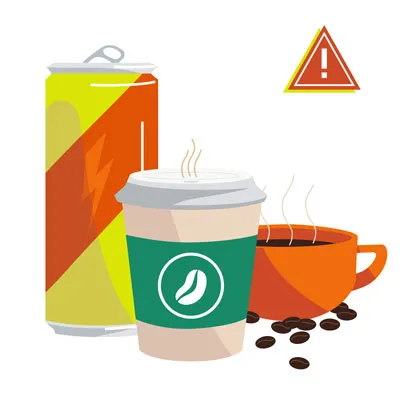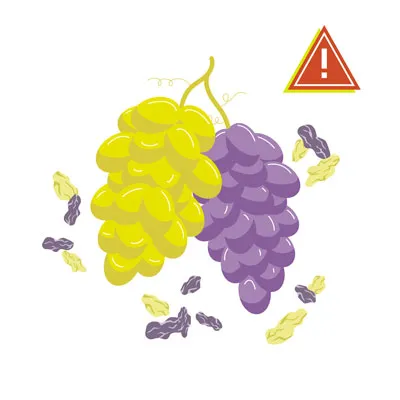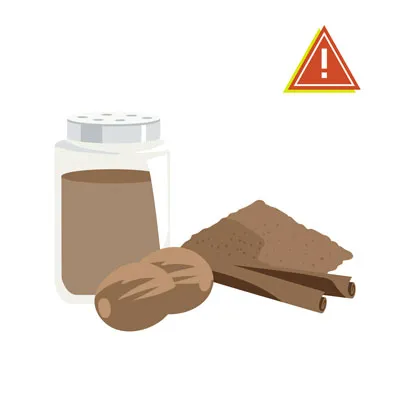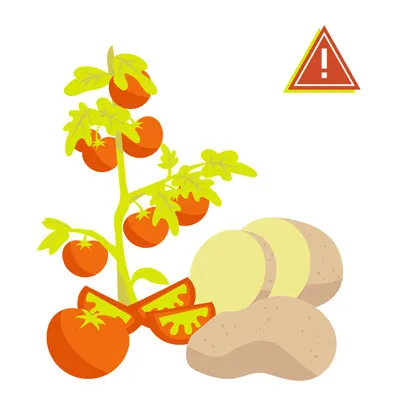As a dedicated dog parent, you want to provide your beloved companion with the best of everything, especially when it comes to food. While sharing meals with your furry friend might seem like a loving gesture, many common human foods can be incredibly dangerous, and even fatal, for dogs. Understanding What Human Can Dogs Not Eat is crucial for their safety and well-being. Pet poisonings are a significant concern, with over 401,500 cases reported annually in the United States, and household foods are a major contributor. This guide aims to equip you with the essential knowledge to keep your dog safe from harmful human foods, serving as your ultimate “cheat sheet” to prevent accidental toxic ingestions and ensure your pup enjoys a healthy, happy life. If you’re wondering what people food can my dog eat, it’s equally important to know the forbidden list to protect them from harm.
Why Certain Human Foods Pose a Threat to Dogs
The digestive and metabolic systems of dogs are fundamentally different from humans, which explains why we can safely consume many foods that are toxic to our canine companions. Dogs process certain substances in unique ways. For instance, theobromine and caffeine found in chocolate are metabolized much slower by dogs, allowing these compounds to accumulate rapidly in their system and potentially become lethal. Similarly, while cherries are harmless for humans, the cyanide present in their pits, stems, and leaves can be problematic for dogs if consumed in large quantities. Cherry pits also pose a risk of causing diarrhea due to their difficulty in digestion.
The severity of food toxicity can also vary based on a dog’s size, breed, and existing health conditions. Therefore, always consult your veterinarian if you have any uncertainties about foods your dog should avoid.
A Definitive List of Common Human Foods Dogs Cannot Eat
Many everyday household foods are dangerous, and often toxic, to dogs. This comprehensive list details some of the most common and critical foods that are bad for dogs. While this rounds up what human can dogs not eat, remember it’s not an exhaustive list.
1. Alcohol
Due to their smaller size compared to humans, alcohol can have a more severe and deadly impact on dogs. Even minimal amounts can cause harm, with the danger increasing for smaller pets. Symptoms of alcohol poisoning in dogs mirror those in humans, including vomiting, breathing difficulties, coma, and even death.
2. Apple, Apricot, Cherry, and Plum Seeds/Pits
While the fleshy part of apples is safe for dogs, the core and seeds are not. Apple seeds contain cyanide, and though small amounts may not be immediately harmful, it’s best to remove the core and seeds entirely. Similarly, apricot, cherry, peach, and plum seeds and pits must be avoided. These fruit pits also contain cyanide, which can lead to vomiting, an irregular and rapid heartbeat, seizures, coma, and even death, by preventing red blood cells from effectively carrying oxygen.
3. Avocado
Avocados are not a suitable food for dogs. While rare, there have been reported cases of myocardial damage in dogs after consuming avocados. Additionally, an intact avocado pit can cause a dangerous gastrointestinal obstruction. It’s safest to keep this fruit away from your dog.
4. Broccoli
Broccoli contains isothiocyanates, which can be harmful to pets in very large doses. Although small, infrequent amounts might be acceptable, it’s generally best to avoid broccoli given the abundance of other safe and healthy food options available. Broccoli stalks can also pose a choking hazard for dogs.
5. Caffeine and Coffee Grounds
Caffeine contains methylxanthines, which can cause potentially fatal symptoms such as diarrhea, vomiting, seizures, and an irregular heartbeat. Ingesting coffee grounds or caffeine-rich beverages can cause a dog’s heart to race, leading to seizures, tremors, arrhythmia, and difficulty breathing.
 A dog looking curiously at a cup of coffee and coffee beans on a table.
A dog looking curiously at a cup of coffee and coffee beans on a table.
6. Fatty Cuts of Meat (Chicken & Turkey Skin, Ham)
Fatty cuts of meat, including chicken or turkey skin and ham, should be discarded rather than given to pets. Their high-fat content can trigger acute pancreatitis, a life-threatening illness with severe complications.
It is also critical to avoid turkey and chicken bones. These bones can splinter, leading to bowel obstruction or damage to the stomach or intestines. In severe cases, a puncture can occur, resulting in a fatal abdominal infection.
7. Chocolate
Chocolate toxicity is a frequent cause of pet poisonings. Dogs absolutely cannot eat any chocolate product. Chocolate contains theobromine, a lethal compound, with darker chocolates having higher concentrations. Chocolate also contains caffeine, and some sugar-free varieties may contain xylitol, both of which are toxic to dogs. Dogs and cats cannot metabolize chocolate as effectively as humans. Dark chocolate and baker’s chocolate are the most dangerous, but any type of chocolate can be problematic.
Symptoms of chocolate ingestion include hyperactivity, vomiting, diarrhea, pancreatitis, abnormal heart rhythm, and seizures. If your dog consumes any amount of chocolate, regardless of how small, contact your veterinarian immediately.
8. Grapes and Raisins
Grapes and raisins are exceptionally dangerous for dogs. These fruits can cause severe issues, including kidney failure, due to their toxic tartaric acid. Even a few bites can wreak havoc on your dog’s kidneys. Symptoms of raisin or grape poisoning include vomiting and diarrhea, loss of appetite, and changes in or complete cessation of urine production.
 A dog looking at a bowl of grapes on a table, with a worried expression.
A dog looking at a bowl of grapes on a table, with a worried expression.
9. Macadamia Nuts, Almonds, and Pistachios
Macadamia nuts can cause numerous painful symptoms in dogs, such as weakness, overheating, and vomiting. Although the precise mechanism of poisoning is unknown, these nuts are considered toxic. As few as six macadamia nuts can cause severe poisoning in a small dog.
While macadamia nuts are the most dangerous, other nuts like pistachios and almonds can pose choking hazards or become problematic if flavored or spiced.
10. Milk and Dairy Products
Milk and other dairy products should be evaluated on a case-by-case basis. Some dogs can tolerate milk or dairy without issues, but others are lactose intolerant or allergic, experiencing diarrhea and gas if they consume cow’s milk.
Ice cream is also bad for dogs due to its high sugar and fat content. Instead, consider freezing healthy fruits your dog can eat as a treat. Small quantities of lower-fat cheese can be acceptable as a treat.
11. Mushrooms
It’s safest to avoid feeding your dog mushrooms altogether. Mushrooms can contain a variety of toxins that may cause kidney and liver failure, vomiting, diarrhea, hallucinations, and damage to red blood cells. While commercially grown white button mushrooms may be less risky, it’s generally wiser to choose a different treat.
12. Nutmeg and Cinnamon
Dogs should never be given foods containing nutmeg. This spice can induce hallucinations and severe vomiting. The compound myristicin in nutmeg is the culprit, with stronger effects in higher doses or on smaller dogs. If your dog ingests any amount of nutmeg, contact your veterinarian.
Cinnamon should also be avoided, not primarily due to toxicity, but because it can irritate your dog’s mouth and potentially lead to low blood sugar, which can have serious health implications.
 A dog sniffing spices, including nutmeg and cinnamon sticks, on a kitchen counter.
A dog sniffing spices, including nutmeg and cinnamon sticks, on a kitchen counter.
13. Onions, Garlic, Chives, and Leeks
Many pet owners are unaware that herbs from the allium family, such as onions and garlic, are unsafe for dogs. Onions and garlic contain sulfoxides and disulfides, which can damage red blood cells and cause anemia in both dogs and cats. Be diligent in checking labels, as onion and garlic powders are found in many prepared foods, including some baby foods.
All allium plants, including chives and leeks, can cause potentially fatal anemia in dogs and cats. Certain Japanese dog breeds, such as Akitas and Shiba Inus, are particularly sensitive, but these plants are dangerous for all dogs.
14. Salt
Excessive salt intake can disrupt the fluid balance in a dog’s cells. Too much salt can lead to tremors, seizures, diarrhea, or even a coma. Whether it’s rock salt, homemade play dough, or potato chips, do not let your dog’s pleading eyes compromise their health.
15. Spicy Food
Keep your dog away from spicy foods. Hot, spicy ingredients can cause vomiting, stomach ulcers, or diarrhea, leading to pain for your dog and potentially costly emergency veterinary visits.
16. Sugar-Free Gum and Candy (Xylitol)
Xylitol is an artificial sweetener found in many human foods, including sugar-free gum and candy. In dogs, it causes a rapid and dangerous drop in blood sugar, leading to weakness and seizures. Some dogs may also develop liver failure. Poisoning cases involving xylitol, often found in sugar-free baked goods, are increasing. The amount of xylitol in just five pieces of gum could be fatal to a 65-pound dog.
17. Tomatoes and Raw Potatoes
Tomatoes and potatoes fall into a category of foods that are safe in some forms but unsafe in others. A ripened red tomato is generally acceptable. However, the green parts of the tomato plant contain solanine, which is toxic to dogs, as do green, unripe tomatoes.
Potatoes follow a similar rule. Baked or boiled potatoes without additives are generally safe in small quantities. However, raw potatoes contain solanine, which is toxic to dogs.
 A selection of fresh tomatoes, some green and some red, next to raw potatoes.
A selection of fresh tomatoes, some green and some red, next to raw potatoes.
18. Tobacco
Tobacco is extremely dangerous and unhealthy for your dog. Exposure to nicotine-containing products can cause a range of symptoms, including vomiting, diarrhea, rapid or labored breathing, agitation, abnormal heart rate, wobbliness, muscle weakness, fluctuating blood pressure, seizures, and tremors. More significant or frequent exposure can lead to blue gums and coma, potentially resulting in death. Dogs are curious and might encounter discarded cigarettes on walks or cigarette butts in ashtrays. If your dog ingests tobacco, immediate veterinary attention is crucial.
19. Yeast and Raw Dough
Yeast and raw dough are unsafe for dogs for multiple reasons. Raw dough can expand in a dog’s stomach, causing severe pain and potentially life-threatening conditions like gastric torsion or rupture. Additionally, the yeast and sugar in raw dough can ferment, producing alcohol and leading to alcohol toxicity, which requires immediate medical intervention and can quickly become fatal.
20. Raw Meat
Never feed your dog raw or undercooked meat. Raw meat can harbor harmful bacteria like Salmonella or E. coli, which can sicken dogs just as they can humans. Furthermore, bones in raw meat pose a significant choking hazard.
21. Rhubarb
Rhubarb, often used in desserts, is not safe for pets. Its leaves contain soluble calcium oxalate crystals. Consumed in large enough quantities, these crystals can bind with calcium in the body, causing a dangerous drop in calcium levels and potentially leading to renal failure. Symptoms include tremors, weakness, drooling, bloody urine, changes in thirst and urination, and vomiting.
22. Star Fruit
Similar to rhubarb, star fruit also contains soluble calcium oxalate crystals. It’s best to prevent your dog from snacking on this fruit.
23. Flavored Water and Seltzer Water
Always opt for fresh, clean water for your dog over anything flavored or carbonated. Seltzer and flavored waters may contain added ingredients dangerous to pups, such as sugar or salt. While plain seltzer water might be acceptable in very small, urgent situations, it can cause gas and bloating. Plain water remains the best choice.
Foods Safe for Dogs
While the list of foods dogs cannot eat is extensive, there are plenty of safe and healthy human foods that your dog can enjoy. If you’re exploring what foods are good to feed your dog, consider these options:
1. Apples (without core/seeds), Oranges, and Bananas
Remove apple cores and seeds, which are toxic, but the fleshy parts of apples are perfectly fine. Cut apples into small pieces to avoid any risk of your dog accessing the core. Oranges are safe in small amounts. Bananas (peeled and in moderation) also make a tasty treat.
2. Blueberries and Blackberries
Blueberries are delicious treats many dogs love. They are rich in antioxidants, fiber, phytochemicals, and vitamin C, all beneficial for your dog’s health. Blackberries are also a safe option.
3. Cantaloupe, Mango, Peaches, Pears, Pineapples, and Watermelon
Many fruits can be safely enjoyed by your dog! Cantaloupe is a great starting point. Watermelon is also a refreshing option, provided you remove the rinds and seeds (including the pale seeds in seedless varieties) to prevent choking. Mangoes, peaches, pears, and pineapples are safe in moderation; just be sure to remove all seeds, pits, and cores.
4. Carrots, Cucumber, and Celery
The “three C’s” – carrots, cucumbers, and celery – are excellent choices, especially for overweight dogs, as they are very low in calories. Bite-sized carrot pieces offer a satisfying crunch. Celery bites also provide a fun crunch and can help with bad breath. Cucumber slices are packed with vitamins and minerals, with minimal carbohydrates or fats.
5. Cheese
While general milk and dairy consumption should be cautious, a small amount of cheese occasionally is acceptable if your dog isn’t lactose intolerant. Opt for lower-fat varieties, like a bit of mozzarella, as high-fat cheeses can be dangerous.
6. Eggs
Fully cooked eggs are a tasty and beneficial treat. Scrambled eggs can help soothe an upset stomach and provide a good source of protein.
7. Peanuts, Peanut Butter, and Cashews
Unsalted, unflavored peanuts and cashews are safe in small quantities. Due to their high-fat content, offer them sparingly. Peanut butter, in moderation, is a delicious and high-protein snack. Crucially, choose unsalted peanut butter and avoid any sugar-free varieties that contain xylitol.
8. Popcorn and Corn
Air-popped, unsalted, and unbuttered popcorn can be a delightful treat for your dog. Thoroughly check for unpopped kernels to prevent choking. Corn (removed from the cob) is also acceptable when served plain, without butter, salt, or spices.
9. Coconut and Honey
In small amounts, coconut (including coconut milk and coconut oil) is fine for your dog and may even aid with allergies due to lauric acid. However, some dogs might experience an upset stomach from fresh coconut or coconut milk, so introduce it cautiously. Avoid coconut water and the furry shell (choking hazard). Honey, in moderation, is safe and provides beneficial vitamins and minerals.
10. Shrimp and Fish
Plain, fully cooked shrimp is a great option. Ensure the shell, head, tail, and legs are removed, and avoid any seasoned, salted, or buttered varieties. Fish, especially salmon and sardines, is also permissible, provided it’s plain, fully cooked, and boneless. Limit fish to no more than twice a week. Plain, canned tuna packed in water (not oil) is safe in moderation to prevent excessive mercury and salt intake.
11. Turkey
Turkey meat is healthy and safe for dogs once the skin, fat, and bones are removed. Small bites of plain, unseasoned turkey make a delicious, protein-rich treat.
12. Grains, Wheat, and Quinoa
Small amounts of wheat or other grains are generally fine. Quinoa is a healthier filler option. Monitor your dog for any signs of allergic reactions.
13. Green Beans
Many dogs enjoy green beans, whether raw, steamed, or from a can. They are safe, tasty, and healthy. Choose raw or plainly cooked green beans without added spices, oils, or salt, and cut them into small pieces to prevent choking.
Dogs Most at Risk from Consuming Toxic Foods
While all dogs should be protected from toxic foods, certain factors increase a dog’s risk:
- Small breeds vs. large breeds: Smaller dogs are more vulnerable due to their lower body weight, especially with substances like chocolate.
- Puppies: Young dogs have less developed digestive and immune systems, making them more susceptible to certain substances, including raw dog food.
- Elderly dogs: Older dogs may face higher risks due to existing health conditions. For example, those with other health problems should not be fed raw dog food.
- Dogs with pre-existing conditions: Conditions like diabetes or kidney disease can put a dog at greater risk.
How to Prevent Dogs from Eating Toxic Foods
Accidents can happen, but proactive measures can significantly minimize the risk of your dog ingesting unsafe human food.
1. Store Foods Out of Reach
Ensure all toxic foods are inaccessible to your dog. Keep dangerous items on high shelves or securely locked away in cabinets your dog cannot open.
2. Avoid Feeding Dogs from Your Plate
Resist the urge to feed your dog from your plate or while you’re cooking, even if it’s just a small treat. It’s safest to only provide treats specifically formulated for dogs.
3. Educate Family Members and Guests
Inform your family, including children, and any guests that, no matter how tempting, they should never sneak food to your dog.
4. Be Extra Careful During Holidays
Exercise extra caution during holidays when busy environments can lead to relaxed vigilance while cooking.
If, despite your precautions, your dog eats something toxic, be prepared to act quickly. Keep emergency contact information readily available for 24/7 veterinary services and poison control.
What to Do if Your Dog Eats Something Toxic
If your dog consumes toxic food, seek help as quickly as possible. Be familiar with the symptoms of food toxicity to recognize them promptly. Symptoms vary depending on what was ingested and can include listlessness, distress, pain, vomiting, bloody stools, or a bloated, hard stomach (which can indicate a life-threatening condition requiring immediate treatment).
If you observe these symptoms, follow these steps:
- Call your veterinarian or poison control immediately. Timing is critical; treatments are generally more successful with faster intervention.
- Be ready with crucial information such as the type of food eaten, the estimated amount consumed, and the time of ingestion.
- Avoid home remedies unless advised by your veterinarian. Remedies depend on the specific substance ingested, and even inducing vomiting can be harmful in some cases.
Pets Best Can Help You Keep Your Dog Healthy
Navigating the world of household toxins and dangerous foods can be challenging, especially since dogs don’t always have the most discerning taste. By following this guide and remaining vigilant, you can effectively protect your dog from harmful foods.
The good news is that there’s an abundance of safe and healthy foods your dog can enjoy! Discover which safe options your dog loves and offer them as treats when they’ve been a good companion. If you’re ever unsure about any food item, always consult your veterinarian. If your dog won’t eat what can I give him, or if you’re exploring what human food can you feed dogs, always prioritize their safety and consult a professional.
Pet insurance is an excellent way to safeguard your dog from unexpected toxic encounters. Pets Best offers customizable dog and puppy insurance plans to suit your pet’s unique needs. Additionally, Pets Best policyholders have access to a 24/7 Pet Helpline, allowing them to speak with a veterinary expert anytime, which can be invaluable if you’re concerned about something your pet may have eaten.
References
- “Top 10 dog poisons,” Hilary Parker (5/2023), WebMD, https://www.webmd.com/pets/dogs/top-10-dog-poisons
- “What happens if a dog eats chocolate?” (10/2023), Colorado State University, https://vetmedbiosci.colostate.edu/vth/animal-health/why-is-chocolate-bad-for-dogs/
- “Fruits and vegetables dogs can or can’t eat,” (3/2024), American Kennel Club, https://www.akc.org/expert-advice/nutrition/fruits-vegetables-dogs-can-and-cant-eat/
- “What to do if your dog drinks alcohol,” Jerry Klein (7/2023), American Kennel Club, https://www.akc.org/expert-advice/vets-corner/is-alcohol-dangerous-for-dogs/
- “Can dogs eat apples?” Hector Joy (12/2022), PetMD, https://www.petmd.com/dog/general-health/can-dogs-eat-apples
- “Can dogs eat plums?” Katie Koschalk (7/2023), Chewy, https://be.chewy.com/nutrition-pet-diet-tips-can-dogs-eat-plums/
- “Avocado (Persea spp) Toxicosis in Animals,” Cristine Hayes (9/2024), Merck Veterinary Manual, https://www.merckvetmanual.com/toxicology/food-hazards/avocado-persea-spp-toxicosis-in-animals
- “People foods to avoid feeding your pets,” (n.d.), ASPCA, https://www.aspca.org/pet-care/animal-poison-control/people-foods-avoid-feeding-your-pets
- “People foods dogs can and can’t eat,” (3/2024), American Kennel Club, https://www.akc.org/expert-advice/nutrition/human-foods-dogs-can-and-cant-eat/
- “Can dogs eat nuts?” Amanda Ardente (1/2023), PetMD, https://www.petmd.com/dog/nutrition/can-dogs-eat-nuts
- “Can dogs drink milk?” Sandra C. Mitchell (1/2024), PetMD, https://www.petmd.com/dog/nutrition/can-dogs-drink-milk
- “Can dogs have nutmeg?” Barri J. Morrison (11/2023), PetMD, https://www.petmd.com/nutmeg-safe-dogs
- “Onion, garlic, chive, and leek poisoning in dogs,” Renee Schmid et al. (2024), VCA Animal Hospitals, https://vcahospitals.com/know-your-pet/onion-garlic-chive-and-leek-toxicity-in-dogs
- “Can dogs eat tomatoes?” Anna Burke (10/2024), American Kennel Club, https://www.akc.org/expert-advice/nutrition/can-dogs-eat-tomatoes/
- “Can dogs eat potatoes?” Katherine Ripley (11/2023), American Kennel Club, https://www.akc.org/expert-advice/nutrition/can-dogs-eat-potatoes/
- “What to do if your dog eats a cigarette butt,” (6/2023), American Kennel Club, https://www.akc.org/expert-advice/health/dog-ate-cigarette-butt/
- “Dough & dogs: Why it’s bad and what you can do,” Lisa Goldstein (7/2024), Preventive Vet, https://www.preventivevet.com/dogs/dough-is-toxic-to-dogs
- “Rhubarb,” (n.d.), Pet Poison Helpline, https://www.petpoisonhelpline.com/poison/rhubarb/
- “Can dogs drink carbonated water?” Heather Logue (n.d.), Rover, https://www.rover.com/blog/can-dogs-drink-carbonated-water/
- “What fruits can dogs eat?” Ellen Malmanger (2/2024), PetMD, https://www.petmd.com/dog/nutrition/what-fruits-can-dogs-eat
- “Can dogs have green beans?” Anna Burke (8/2022), American Kennel Club, https://www.akc.org/expert-advice/nutrition/can-dogs-have-green-beans/
- “About pet food safety,” (4/2024), CDC, https://www.cdc.gov/healthy-pets/about/pet-food-safety.html
